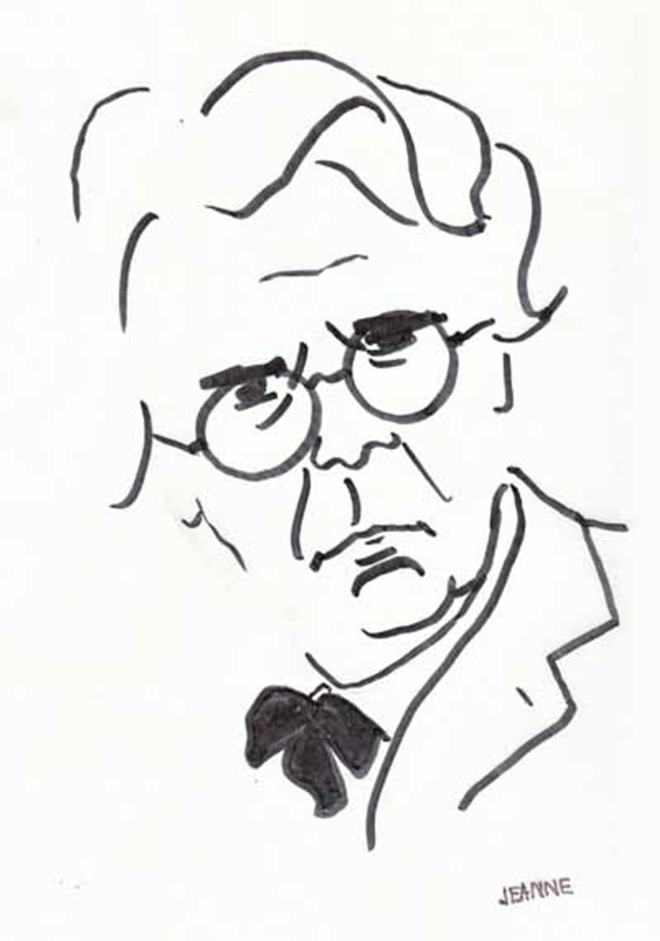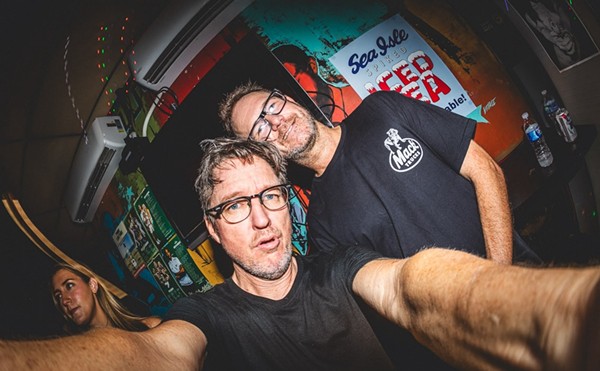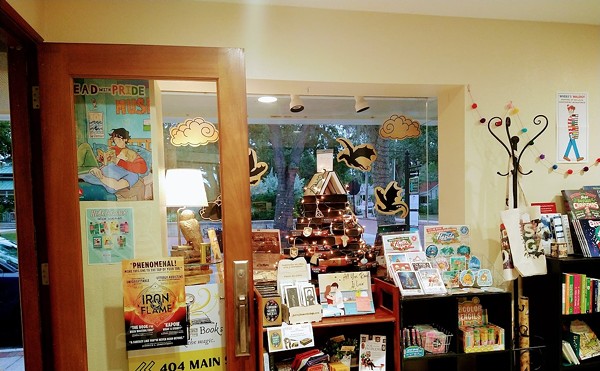Truth flourishes where the student's lamp has shone,
And there alone...
—from The Leaders of the Crowd, by William Butler Yeats
My high school yearbook (1950) says, in a concluding list of predictions: "Peter Meinke. Wants to be — Writer; Probably will be — Censored."
Although both of these predictions came true, President Obama's activation of the new G.I. Bill reminded me that if not for our government's largesse, the outcome could have been very different. Big government? Don't be afraid, Senator Grassley! Bring it on!
By 1958 I'd graduated from college, served in the Army, and was teaching 7th grade English at my old high school. I enjoyed teaching, but after two years we decided if I were going to write, I should go to graduate school. I wasn't noble enough to give all that time to students — teaching, grading, advising, coaching, chaperoning: public school teachers, underpaid and overworked, are the angels of America's educational system. In college, there's a lot more time, and encouragement, to write. In fact, the stern university warning, "Publish or perish," sounded to me like an inspirational motto, like "Live Free or Die."
In 1958, on my annual high school salary of $4,400, we had zero savings. But although I wasn't eligible for the G.I. Bill — only for Korean vets — I was eligible for a National Defense Education Act loan. Bravely, Jeanne agreed to make the jump, so off we rumbled to Ann Arbor in a shaky car, with two infants, a suitcase full of used paperbacks and a $2,000 NDEA loan. The fact that we ran out of money by Christmas and had to turn to Beneficial Finance made no difference ("Don't worry," they assured us, "we do lots of business with teachers!"). By the end of our first week at the University of Michigan, we knew we had made the right choice, and there was no turning back.
The first G.I. Bill (1944) was the last of the New Deal legislation, and changed American society: 7.8 million soldiers (51 percent) signed up for it, and 2.4 million for the accompanying VA Home Loans. I remember those WW II vets from my college days — just a few years older than us, but different. For one thing, they studied hard. They chain-smoked, hooked on free Army cigarettes. We admired and tried to imitate them, but for the most part they ignored us, except for poaching on our dates once in a while. When they graduated, these ex-soldiers led a mass movement into our economy, swelling the middle class.
Harry Truman signed the Korean G.I. Bill in 1952, and Lyndon Johnson the Vietnam bill in 1966, creating a huge educated and tax-paying work force. The push for these costly bills — which soon paid for themselves — was often bi-partisan, but fueled by Democrats. The new "Post 9/11" G.I. Bill was signed last year by President Bush, but both he and John McCain fought it — a subject during the debates — as Barack Obama and Hillary Clinton supported it. Bush threatened to veto the bill as too expensive (while uselessly dumping a trillion in Iraq), but under patriotic pressure finally signed it. This generous bill ($1,000 annual book allowance!) will play a key role in pushing us forward: it's a multifaceted government stimulus package. We should be proud of our country for pioneering mass college attendance across the world, probably our best hope for peace.
Democrats have long promoted citizens' rights to education, health and security. To balance this, Republicans, arguing on behalf of fiscal restraint and individual responsibility, promote Wall Street's right to be unregulated, and Main Street's right to own guns. In St. Pete, they voted for Bill Foster as Mayor.
The same forces are at work with health care. If we could have an orderly discussion, the majority would realize that 1) a public option will save us money while extending our coverage; and 2) healthier and more secure people — with the usual deadbeat exceptions (Beware the Cadillac queen!) — will work harder and more successfully for themselves: that's good for the country.
But first, we need to talk and listen. The recent passionate outbursts from the crowds look and sound more like lynchings or dog fights than debates. Beneath the anger lie ancient and inherited prejudices, fanned by the familiar mouthpieces for intolerance.
Every system has its horror stories, but there's no more successful and popular health care in the world than the Single Payer System — none of the countries that have it will ever come close to voting it out. So the main question should be, What are these redfaced ranters really afraid of?
As the great Irish poet and politician William Butler Yeats (1865-1939) knew, the end of knowledge isn't the right answers, but the right questions:
And what rough beast, its hour come round at last,
Slouches towards Bethlehem to be born?
—from The Second Coming by William Butler Yeats
—Unquestionably, Peter Meinke will read from his latest book, Lines from Neuchâtel — illustrated by Jeanne — at Inkwood Books (216 S. Armenia Ave., Tampa), 7 p.m on Thursday September 24.
3















